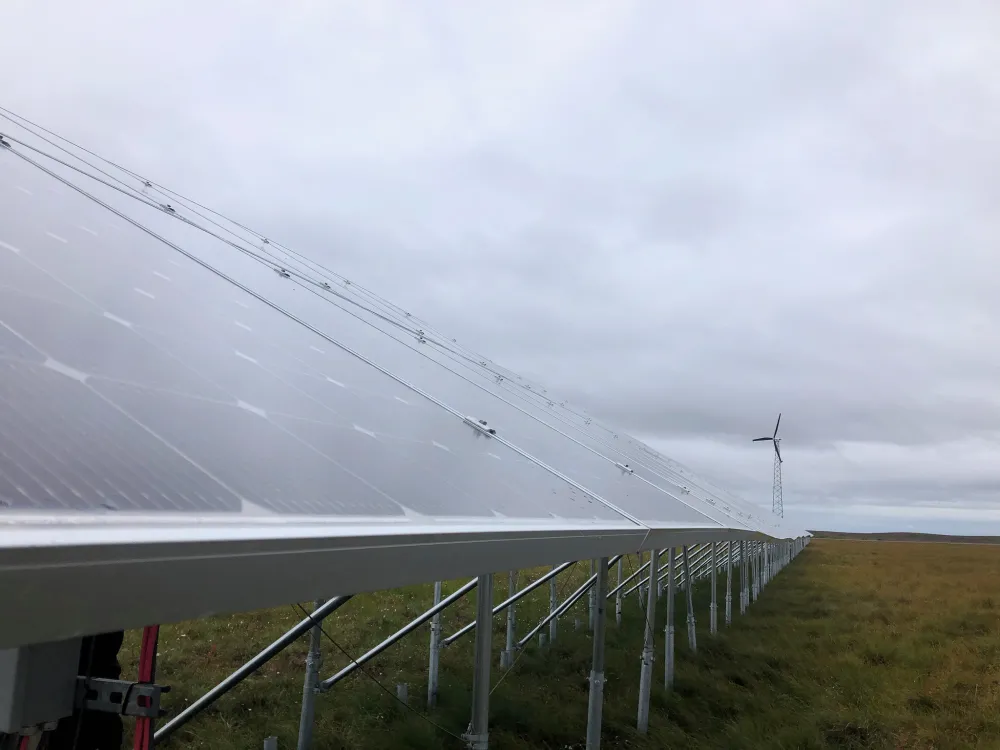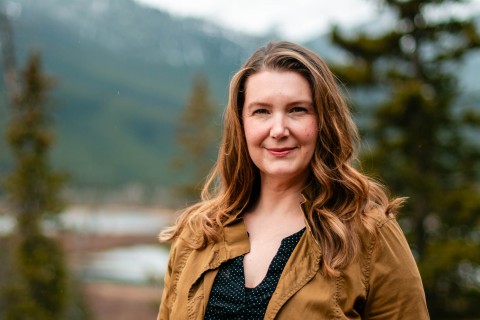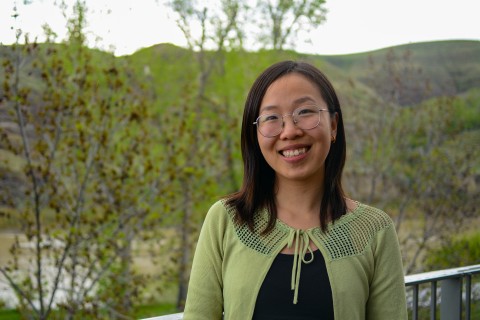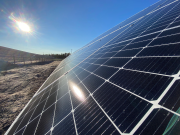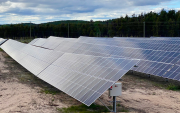Transitioning remote communities off-diesel and toward clean and renewable energy requires the confrontation of a wide range of financial, social, and environmental barriers which limit momentum on clean energy action. Key to bringing down those pervasive barriers are capacity building and knowledge exchange — both key outcomes of the 2023 Alaska Wind Workshop, an event the Pembina Institute’s Renewables in Remote Communities (RiRC) program attended and presented at.
As part of the workshop, renewable energy sector leaders and experts from Canada and Alaska were invited to exchange lessons learned on their experience with the clean energy transition. Discussions surrounding national funding opportunities for renewable energy developers and utilities, sharing of technical challenges of renewable energy development in northern climates, and the value of investing in skilled labor helped demonstrate the critical value of both convening and exchange. Given the unique geographic, technological, and political landscape of remote communities in both jurisdictions, this exchange offered several key learnings worthy of continued discussion, research, and support.
We’ve outlined three major takeaways stemming from this opportunity for international and inter-jurisdictional exchange:
Energy sovereignty and UNDRIP
Most remote communities in both Alaska and Canada are Indigenous. Across all policy priorities, the demographic makeup of these communities emphasizes the importance of the United Nations Declaration on the Rights of Indigenous Peoples (UNDRIP), which affirms the rights Indigenous Peoples have to self-determination among many other critical human rights imperatives. Meeting national and global clean energy priorities requires serious engagement with these concepts, including within remote Indigenous communities where the pressure to transition off diesel is closely tied to many social, economic, and environmental priorities.
The relationship between clean energy, diesel reduction, and Indigenous rights to self-determination is inherent, but it is not always well understood or immediately recognized. Given this reality, it is incumbent on energy leaders, governments, and corporations to build competencies around the role UNDRIP plays in clean energy development in remote Indigenous communities.
The application of UNDRIP within clean energy policy encourages an inclusive exploration of diverse motivators for energy transition and can support the removal of persistent and unique barriers in clean energy development. When applied, UNDRIP also ensures the greater possibility of project success according to local priorities, needs, values and competencies. Support, endorsement, and implementation of UNDRIP from decision-makers is an accelerant to success.
Affordability and consumer rates
Pursuits for affordability are a consistent driver of the clean energy transition. This is especially prevalent in remote communities. In Canada, for example, energy prices in remote communities are on average six to ten times higher than in the rest of Canada. Alaskan communities face strikingly similar conditions, where remote community residents pay upwards of $1.00/kWh for electricity while residents of the lower 48 states generally experience rates at around $0.16/kWh. Increasing energy efficiency and implementing local renewable energy generation can alleviate affordability inequities by reducing the amount of energy consumed and improving energy security by reducing reliance on volatile global fossil fuel markets. Key to any action taken towards clean energy in remote communities is assuring that benefits, including lowering energy costs and increasing revenue opportunities, are fully translated on the local level to communities.
Persistent challenges and lessons learned
Interestingly, Alaska and Canada are each home to roughly 240-250 remote communities. Though each community, no matter the jurisdiction, has their own unique set of experiences and values which promote clean energy development, many communities face the same — or very similar — geographic, technical, and policy challenges. Often, these challenges relate closely to the realities of isolation, road inaccessibility, and extreme weather. Together, these challenges create complex and expensive logistics for project development and can complicate effective operations and maintenance.
Policy makers in all remote jurisdictions can support community clean energy development by ensuring that policies, programs, and funding adequately reflect the geographical, logistical, and capacity challenges faced during project development. Cross-community and interjurisdictional knowledge sharing can support these efforts and help build local capacity, ensure operational longevity, and encourage local skills development. In particular, decision-makers and program designers should look to successful program design in other jurisdictions for lessons learned regarding local capacity building and partnership. Good examples of capacity building initiatives that decision-makers can look to include the Indigenous Off-diesel Initiative in Canada and People in Power in Alaska.
Through a commitment to greater exchange, all actors in the remote energy space can actively participate in broad-based and more accelerated learning in a sector which struggles with local energy literacy, but also thrives off local leadership. The bottom line is that the more we share success stories and lessons learned, the more local leaders can be equipped with the tools they need to kick-start their clean energy journey. There are many shared experiences in this space, we must be generous and committed to building networks to interlink our successes, challenges, and lessons learned.
Conclusion
Policy measures for, experiences with, and approaches to clean energy development are scattered across communities and jurisdictions, and many leaders and government have little access to time-tested technological practices and stories of positive change. This is a contributor to slow clean energy development and shows the need for more locally-informed research, case studies, and adequate funding.
Greater sectoral collaboration and community network-building initiatives can help fill this gap, allowing local leaders to learn from the experiences of others who deal with similar challenges. Opportunities for storytelling offered through forums including the Alaska Wind Workshop, the Indigenous Clean Energy Forum, and the Pembina Institute’s Renewables in Remote Communities conference also play an important role in supporting community energy literacy and inspiring action from governments, clean energy proponents, academics, and more.


